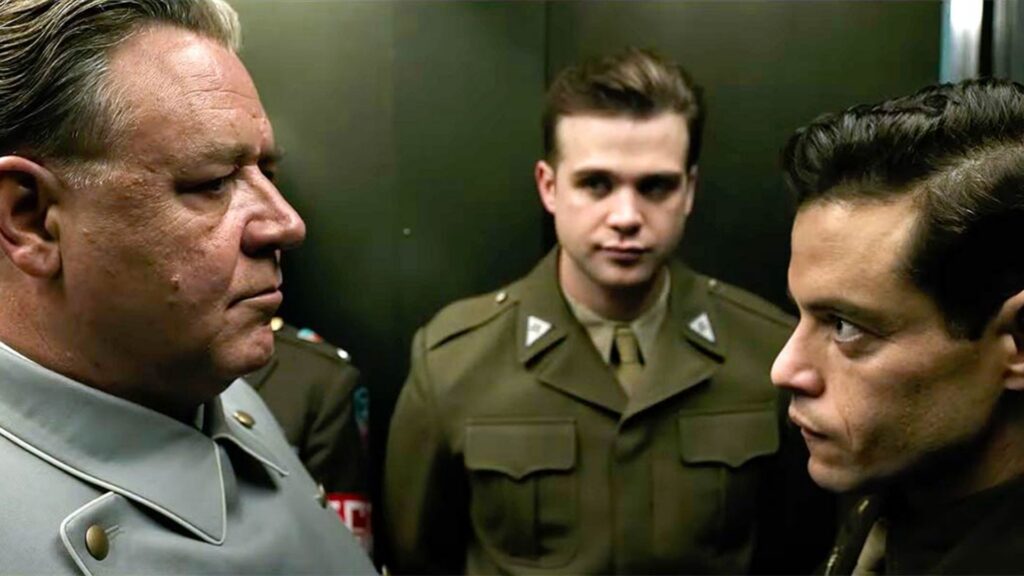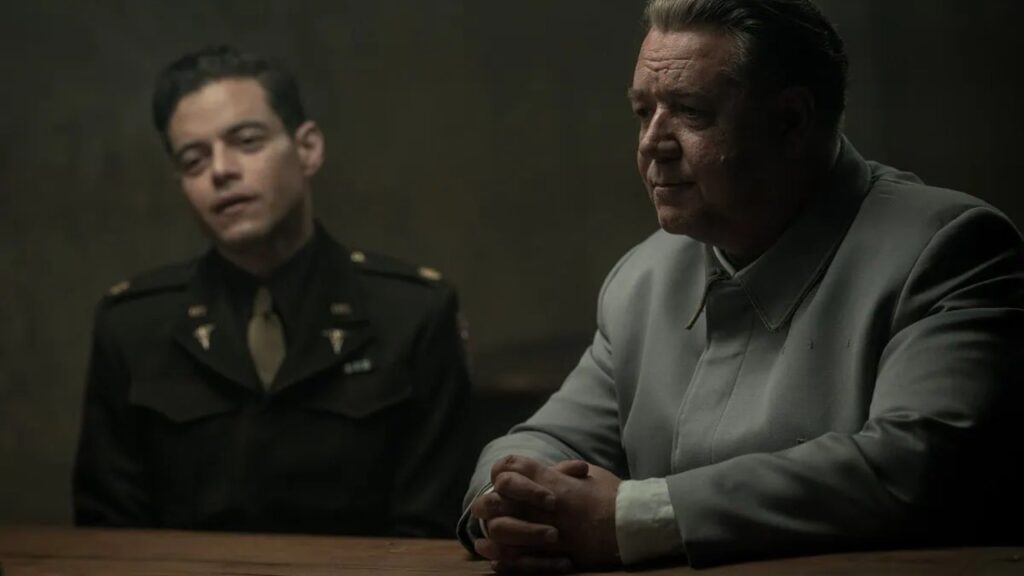Well, the news is in as people out there on the internet are stating that James Vanderbilt’s Nuremberg is not what the earlier reception promised it to be. But that is not all as fans and audiences are definitely praising it but at the critics have their own opinions stating that it lacks some “depth” as well as the storytelling “could have been more better”.
For those who don’t know, this new movie is set to give us a glimpse of examining the postwar trials through the unexpectedly intimate lens of the famous Nuremberg trial. And instead of centering solely on courtroom drama, which Hollywood is known to glorify, the film shows us the vivid story of the U.S. Army psychiatrist Dr. Douglas M. Kelley, who is played by Rami Malek, as he evaluates Hermann Göring’s mental fitness.
Behind the Courtroom Walls Nuremberg Confronts the Humanity Within Evil

In the very starting of the movie, we will see Russell Crowe commanding an unsettling performance as he turns his character Göring into a figure who is both disturbingly human and manipulative. While doing so, we understand that he is basically reinforcing the central question the film refuses to let us escape our minds: how does an ordinary human become capable of such extraordinary cruelty, and how can he even justify it with such confidence?
For those who don’t know, this movie premiered at the 2025 Toronto International Film Festival, leading to a lengthy standing ovation. The film is said to have received quickly praises for its meticulous attention to historical detail, and yet it also sparked debate. While we understand that its subject matter demands solemnity, the film’s first half introduces moments of levity that feel at odds with the weight of its themes.
Vanderbilt occasionally shifts into lighter exchanges between characters, creating tonal dissonance that some viewers and audiences found quite distracting. People have praised Michael Shannon and John Slattery for delivering strong performances, but some have noted that their scenes sometimes drift from the gravity surrounding the tribunal, pulling the narrative slightly off balance.
Critics Split on Nuremberg’s Tone but Agree Rami Malek and Russell Crowe Steal the Show

And by the time Nuremberg moves into its second half, we see how the tone settles. The film returns to the harrowing footage and testimonies that defined the actual trials. These scenes honestly give the story the silence and severity it requires, allowing all its audiences to experience the shock felt by the world in 1945 as it confronted evidence of atrocities on a global stage in front of so many people.
When Göring takes the stand, Crowe’s performance shifts from a confident bluster to an exposed, vulnerable being, revealing not redemption but the unsettling duality of a man who understood his crimes and still justified them how they were a necessity.
But of course, as stated earlier, critics remain split, as some view the film as a prestigious awards-season contender anchored by two powerhouse performances, while others have given their argument that it never fully explores the psychological depth it promised. But nearly all agree that Malek and Crowe elevate the material, their tense, probing exchanges forming the emotional heart of the film.




